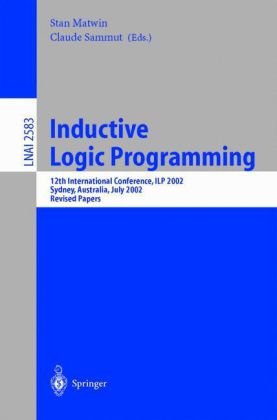

Most ebook files are in PDF format, so you can easily read them using various software such as Foxit Reader or directly on the Google Chrome browser.
Some ebook files are released by publishers in other formats such as .awz, .mobi, .epub, .fb2, etc. You may need to install specific software to read these formats on mobile/PC, such as Calibre.
Please read the tutorial at this link: https://ebookbell.com/faq
We offer FREE conversion to the popular formats you request; however, this may take some time. Therefore, right after payment, please email us, and we will try to provide the service as quickly as possible.
For some exceptional file formats or broken links (if any), please refrain from opening any disputes. Instead, email us first, and we will try to assist within a maximum of 6 hours.
EbookBell Team

5.0
30 reviewsThe Twelfth International Conference on Inductive Logic Programming was held in Sydney, Australia, July 9–11, 2002. The conference was colocated with two other events, the Nineteenth International Conference on Machine Learning (ICML2002) and the Fifteenth Annual Conference on Computational Learning Theory (COLT2002). Startedin1991,InductiveLogicProgrammingistheleadingannualforumfor researchers working in Inductive Logic Programming and Relational Learning. Continuing a series of international conferences devoted to Inductive Logic Programming and Relational Learning, ILP 2002 was the central event in 2002 for researchers interested in learning relational knowledge from examples. The Program Committee, following a resolution of the Community Me- ing in Strasbourg in September 2001, took upon itself the issue of the possible change of the name of the conference. Following an extended e-mail discussion, a number of proposed names were subjected to a vote. In the ?rst stage of the vote, two names were retained for the second vote. The two names were: Ind- tive Logic Programming, and Relational Learning. It had been decided that a 60% vote would be needed to change the name; the result of the vote was 57% in favor of the name Relational Learning. Consequently, the name Inductive Logic Programming was kept.